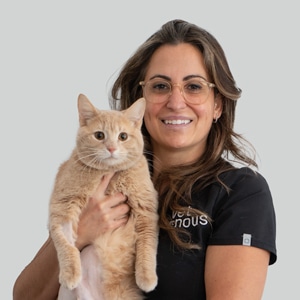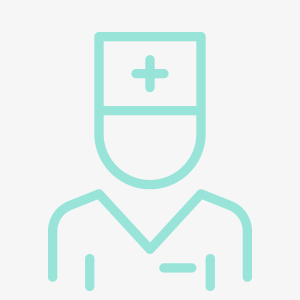Because prevention is the best cure, our hospitals and clinics offer these services to ensure the good health of your companions.
General and Preventive Medicine
To keep your pet healthy, regular visits to the veterinarian ensures their proper development.
Our teams provide annual check-ups, vaccine reminders and personalized preventive advice. Discover our general and preventive medicine services for your companions!
- Annual health checkup
- Vaccination program
- Deworming program
- Parasitic prevention program
- Microchip installation
- Care program adapted for aging-related health issues
We believe that prevention is the best way to promote the good health of our patients. Our veterinarians will always offer you the best advice to keep your pet healthy with you for a long time to come!
Don't hesitate to ask them for advice, they are there to advise you and ensure that your companion will be healthy and by your side for as long as possible!


Dentistry
Whether for routine care, such as teeth scaling, or advice to improve their dental health, our teams are there for your pets.
Dental health is just as important for your pet as is yours!
Our specialized equipment allows us to provide preventive and curative dental care essential to the health of your pet.
Our hospitals are equipped with ultrasonic dental scalers that offer high precision cleaning, to maximize your pet's oral health.
If necessary, we can perform dental x-rays, descaling under the gum and, of course, advise you on the maintenance of your companion's teeth.


General Surgery
At Vet et Nous, you can count on our experienced teams to care for your pets, no matter which surgery they need.
Our hospitals offer routine pet neutering as well as therapeutic surgeries.
Our teams are experienced in a broad range of surgical procedures.
Surgeries performed include:
- Castration and ovariohysterectomy
- Excision of masses
- Abdominal surgeries (gastric, intestinal, bladder, etc.)
- Enucleation
If your pet requires specialized surgery that cannot be performed in your hospital, we will redirect you to our nearest emergency centre or hospital:


In-house Laboratory
Analysis times are swift so we can quickly start treating your companions or recommend changes in their diet or their lifestyle.
Our various equipment on-site allows us to perform biochemical and hematological blood analyses to yield rapid results.
Our technicians also perform other analyses, including coproscopies, urine analyses and screening for other parasites or infectious diseases.
Certain analyses can be sent to an outside laboratory if necessary.


Medical Imaging
With medical imaging, our teams can find the best care to dispense to your dog or cat
Our hospitals are equipped with imaging equipment that allow us to produce high quality images in a short period of time, thus allowing us to diagnose various problems in our patients more accurately.
We offer:
- Digital radiography
- Ultrasonography:
- abdominal
- thoracic (non-cardiac)
- soft tissue
- OFA
- Endoscopy
The available medical imaging services vary in each hospital.


Emergencies
At any time, you are never far from one of our teams that will take care of your companion during an emergency.
During our hospitals and clinics’ normal opening hours, it is possible to come for an animal that requires immediate assistance.
Here is a list of minor emergencies that can be handled by making an appointment:
- Skin problems
- Otitis
- Diarrhea
- Vomiting
- Urinary problems
- Lameness
- Broken claw
- Intoxication, etc
Sometimes it is necessary for your pet to be assessed by a technician first and to determine with you if your pet needs to be seen urgently by a veterinarian.
For an emergency appointment, we recommend that you always call before coming to one of our facilities.
If our team cannot see your pet within a reasonable period of time during our opening hours, we will redirect you to our nearest emergency hospital or center:


In-Home Consultation
To make difficult journeys easier and reduce stress for your companions, our team offers home consultations.
Why request an in-home consultation?
Stress is an integral part of our daily lives. For our furry companions, a single clinic visit can take several days to recover from. If this is the case for your pet, our team will come to your home and take the worry away!
Types of consultations offered
- Consultation for minor health problems
- Consultation for vaccinations
- Follow-up
- Euthanasia
The following teams are offering this service:
Birds and Exotic Pets
Whether it is a mammal or an exotic bird, some of our veterinairan teams can help you to provide for them!
Some of our hospitals have qualified veterinarians to care for your small rodents, reptiles, birds, rabbits, or ferrets, whether for an annual exam, vaccination or health issues.
A variety of surgeries can be performed, notably dental procedures and the sterilization of male or female rabbits, rats, ferrets, etc.
Our specialized team working the Centre Vétérinaire Laval will be able to treat your bird or exotic pet if he needs care that can't be done at your regular hospital or clinic.
The following teams are offering this service:
- Clinique Vétérinaire Cimon Loretteville
- Clinique Vétérinaire Cimon Vanier
- Hôpital Vétérinaire Blainville
- Hôpital Vétérinaire de l'Ormière
- Hôpital Vétérinaire Ste-Rose
- Hôpital Vétérinaire Ste-Thérèse
- Pierrefonds Animal Hospital


Boutique
We have everything to keep your animals healthy and a large selection of balanced food, all recommended by our veterinarians.
Whether you’re looking for food, accessories or treats, all our hospitals can help you find the best product for your pet.
We don’t carry it in our boutique or you cannot come pick it up? No worries, you may order online! You’ll simply need to specify your vet prior to placing your order.


Pet Boarding
With our veterinary team on site at all times, the stay will be an enjoyable time for your companion.
Entrust us with your companion!
Leave with peace of mind, we’ll take care of everything! Our veterinary team will take care of your pet's well-being throughout its stay with us.
The following teams are offering this service:


Animal Behaviour
The behavior of our pets is not always easy to decode. Does your companion have inappropriate or abnormal reactions? Do not hesitate to ask questions!
Dog training is about building good habits.
Most misbehaviour stems from dogs not knowing what to do. Mouthy puppies, jumpy greeters, or enthusiastic barkers do what they do because it comes naturally to them.
Cats also have their little quirks. They can urinate outside their litter box, attack your visitors, meow at night and scratch your beautiful couch!
It is possible that certain behavioural problems are due to a medical condition (pain, hormonal disease, etc.). Therefore, it’s important to speak to your veterinarian or technician as soon as the problem occurs.
They will be able to give you advice or refer you to a specialist near you.
The following teams are offering this service:


Weight Management Program
Ideal weight varies by age, bread or even species. What is certain? Healthy weight management is essential for the health of your pet.
As a professional, your veterinarian is in the best position to recommend a food that is adapted to your pet's health according to its age, activity level and lifestyle habits.
Don't hesitate to share your concerns about your pet's health and your budget with your veterinarian. He will work with you as a team to find the best food that will contribute to your pet's well-being and health.



